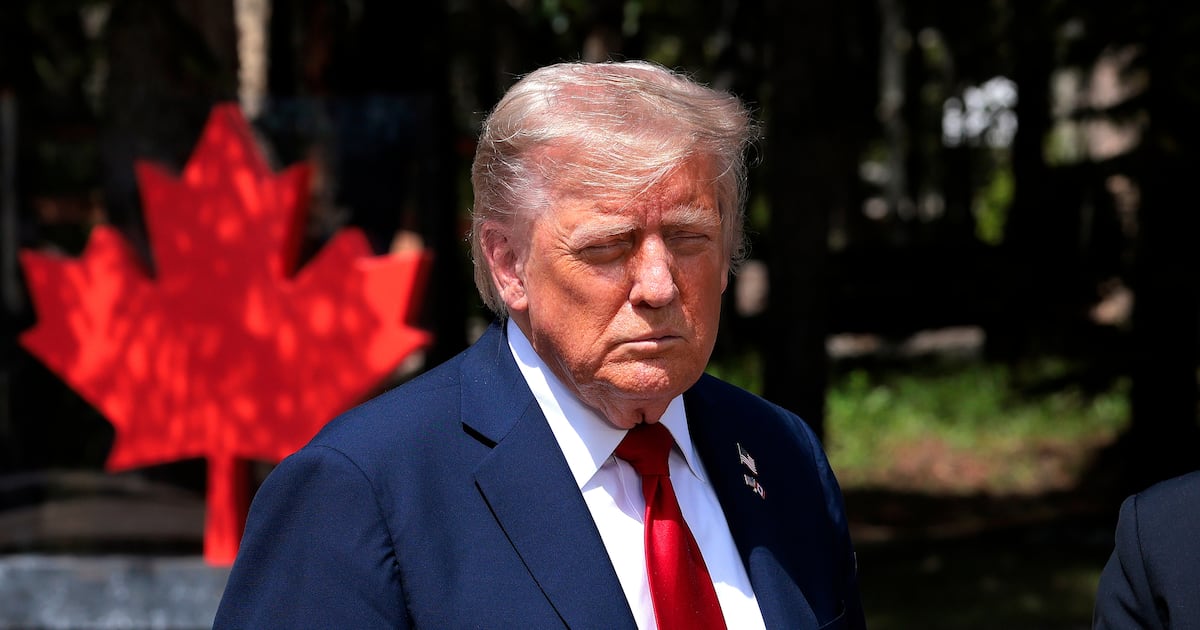CAIRO — The late monarch’s birthday was on a Thursday in February, and as the morning progressed, the messages began to flood in.
“Many happy returns, your majesty,” Maha Ahmed from Cairo wrote in a Facebook group dedicated to Farouk, the king of Egypt who was deposed in a military coup in 1952. “How Alexandria misses you, dear king,” commented another well-wisher, affixing a picture of the old royal standard.
By mid-afternoon, tributes to the long-dead monarch had run the gamut of emotions from pleading to histrionic—and sometimes both.
“We miss you, majesty. We wish you’d stayed,” an American woman of Egyptian origin posted, to great acclaim and a barrage of approving “likes.” “Why did you leave?” she continued. “Why why why?”
After a trying few years that have brought three changes of government since 2011 alone (or five if you include stopgap administrations), Egypt is awash with nostalgia.
The ruling crop of politicians, led by President Abdel Fattah al Sisi, is widely seen to be flailing in its efforts to revive the economy and pacify an insurgency in the Sinai Peninsula. And as dissatisfaction with the status quo mounts, at least some of the unhappiness appears to have translated into an increased affinity for the pre-republican era.
Events and forums devoted to the former royal family have sprung up in droves across social media, where one Facebook group commands almost 3.5 million followers. Keen to reminisce about the “Golden Age,” up to 50,000 new people a week tune in there to share images of 19th- and early 20th-century Egypt, while discussing the monarchy in almost exclusively respectful, and often glowing, terms.
Some princes and figures from families whose fortunes were intimately wrapped up with those of the royals profess themselves slightly bemused by the uptake in interest.
“I think it’s a faintly misplaced nostalgia,” said Prince Abbas Hilmi, likely the most senior member of the deposed king’s line to call Cairo home, when we met in a coffee shop in the city’s upscale Zamalek district.
Prince Naguib, who’s a descendant of an 800-year-old Mameluke dynasty and not directly related to Egypt’s royals, went even further. “There’s a romantic attitude to all of it. It’s the idea of a Golden Age. It’s very naïve,” he said by phone.
But to many other Egyptians, the association with a more hopeful time when life seemed simpler and the country’s trajectory appeared more promising has become something of a salve amid the chaos.
While reporting on the flux that followed the military’s toppling of Islamist president Mohammed Morsi in 2013, I was struck by the depth of feeling the monarchy still inspires in some constituencies. “Bring back the King,” Essam Hammam, the chairman of the Heliopolis Croquet Club, had told me when asked what sort of political system he’d personally plump for.
Even President Sisi, a former general of the same military that toppled Farouk more than 60 years ago, seems aware of the value of clothing himself in royal pomp and circumstance. At the opening of the Suez Canal extension last summer, he elected to float down the new channel in the old royal yacht just as the Khedive Ismail, one of Farouk’s forebears, had done at the inauguration of the original scheme in 1869.
Amid this flurry of attention, questions have arisen as to whether the monarchy is genuinely deserving of its newfound popularity.
It is worth remembering that from the time of the Macedonian Ptolemies, a dynasty created by one of Alexander the Great’s generals in 305 BC, through the Roman empire, the Muslim conquest, the rise of the slave-warrior rulers called the Mamelukes in the Middle Ages, and the Ottomans of Turkey, Egypt was never ruled by what might be called Egyptian Egyptians, and the kings of the 20th century were no exception.
Farouk, the last of a 150-year line descended from the Albanian Ottoman general Muhammad Ali, is accused of being the corrupt and decadent scion of a royal house that had long since lost its way. “He spoke bad Arabic, bad English, and bad French,” by Abbas Hilmi’s recollection, and presided over a system in which a small clique of landowners had succeeded in snapping up almost all of Egypt’s lush Nile-side farms.
The most egregious charges leveled against him suggest that he was so greedy that he deliberately outfitted the Egyptian army with shoddy, antiquated weaponry that contributed to its poor performance against forces of the fledgling Israeli state in the 1948 war.
But to monarchists much of this smacks of misinformation. They feel the institution’s reputation was blackened cynically by the insecure regime of President Gamal Abdel Nasser, the Arab nationalist officer who ruled the republic of Egypt for almost two decades after Farouk sailed off into exile in Italy. Nasser was succeeded by one general-turned-president after another with only the brief two-year interruption after the fall of Hosni Mubarak in 2011 before the current general-president took power in 2013.
Yes, the king was in over his head and ill equipped for the job, they say. “I’m no admirer of Farouk. Not least because he betrayed us all by walking away and leaving us in the lurch,” said Mahmoud Sabit, a historian whose father was a cousin of the king.
They admit, too, that Farouk’s father, Fuad I, who spoke no Arabic at all, and had saddled the country with an ungainly constitution that invested in the monarch too many powers, has a lot to answer for.
But none of this is any reason, Abbas Hilmi feels, to malign an entire family that he says had previously worked wonders in lifting Egypt from a provincial backwater of the Ottoman Empire at the beginning of the 19th century into a state so strong that the Imperial British felt compelled to curtail its rise only decades later.
“I can’t speak on the people’s behalf, but I think we did a titanic amount to change a country that was steeped in the Middle Ages,” said the prince, who, like many Egyptians, reserves particular affection for the first monarch, Muhammed Ali, an Ottoman officer who seized the reins after being dispatched to put down a rebellion after the French ended their brief occupation of Egypt.
“He found a country that was what the Americans would call a basket case, and improved it within a few years,” he added. Under Muhammad Ali’s watch, Egypt became the second country after Britain to have a railway, possibly the second to set up a telegraph, and was among the first to establish a modern postal system.
The legacy of his successors is less clear (his grandson Ismail is said to have bankrupted the country in his zeal to impress visiting European luminaries at the Suez Canal opening, and the British occupied Egypt to collect their debts), but what is certain is that the conduct of contemporary leaders has gone a long way in rehabilitating the image of the royals, whose failings now appear somewhat tame in comparison.
During the protests that preceded the fall of Mohammed Morsi, the Islamist president who was toppled by the military in 2013, several banners favorably invoked the ex-king’s conduct when faced with a similar situation. One of them read: “Farouk had more dignity than you. At least he left without bloodshed.” Not even the king, with his undoubted penchant for ostentatious displays, ever lived up to the 2.5-mile-long red carpet that was rolled out for Sisi’s motorcade in early February.
In the royal era, Port Said, at the entrance to the Suez Canal was a booming global harbor. In recent years, however, it’s become better known for soccer-related violence that many locals blame on the authorities, and it ought to be little surprise that the city last month chose to reinstall its statue of Fuad I, which had been removed along with his family in the ’50s.
Some Egyptians have sought to translate this heightened royal mania into action, clamoring—half-seriously, in many instances—for a constitutional monarchy.
Among possible candidates, there’s Ahmed Fuad, Farouk’s son who ruled as a toddler for 11 months after his father’s abdication. He lives in Italy, and Sisi recently gave him a new passport, which reportedly lists his profession as “former king.”
Abbas Hilmi, who’s been spoken of as a more suitable monarch in some quarters, has been warmly feted since his return to Egypt in the mid ’90s after 40 years of exile in England.
“I expected after all these years of brainwashing saying that we were monsters, that at least some people would be unpleasant, but to this day, I’ve never had an unpleasant encounter. Not one,” he said.
Ultimately, however, neither the prince nor his friends believe a return to some form of monarchy is possible or desirable. “It would be tremendously expensive, and one has to ask oneself, ‘Is it practical? Is it the right thing to do now?’” said Mahmoud Sabit.
More importantly, perhaps, none of those who exercise the real power behind the current throne would countenance it. In a telling illustration of the security apparatus’s continued unwillingness to be seen as making life easy for the royals, the prince was turned out of his family’s house (a non-state-owned property) 10 years after he’d reoccupied it.
As the fifth anniversary of the 2011 revolution rolled around in January with a massive police presence across Cairo designed to ward off protests against a leadership that’s fast losing its luster, no one in the corridors of government seems inclined to rock the boat.
“The military are the ones with authority,” Abbas Hilmi said with a laugh, “and they’re the ones who overthrew us.”






